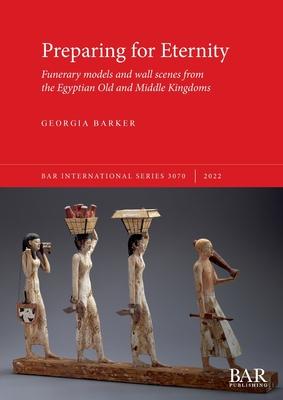During the late Old Kingdom to the end of the Middle Kingdom, there were two principal types of artistic representation in the ancient Egyptian elite tomb: funerary models and wall scenes. The two media exhibit several similarities in design, with both depicting people and animals engaged in activities of everyday life. This has caused scholars to regularly label funerary models duplicates or substitutes of wall scenes, implying that they served the same purpose in the tomb. However, there are several notable differences yet to be acknowledged. This book conducts a detailed comparative analysis of the two artistic media, focusing on representations from the sites of Meir, Deir el-Bersha and Beni Hassan in Middle Egypt. The analysis highlights the distinguishing characteristics of each medium and establishes a more precise understanding of the role of funerary models in the tomb and their relationship to wall scenes.

Preparing for Eternity: Funerary models and wall scenes from the Egyptian Old and Middle Kingdoms
During the late Old Kingdom to the end of the Middle Kingdom, there were two principal types of artistic representation in the ancient Egyptian elite tomb: funerary models and wall scenes. The two media exhibit several similarities in design, with both depicting people and animals engaged in activities of everyday life. This has caused scholars to regularly label funerary models duplicates or substitutes of wall scenes, implying that they served the same purpose in the tomb. However, there are several notable differences yet to be acknowledged. This book conducts a detailed comparative analysis of the two artistic media, focusing on representations from the sites of Meir, Deir el-Bersha and Beni Hassan in Middle Egypt. The analysis highlights the distinguishing characteristics of each medium and establishes a more precise understanding of the role of funerary models in the tomb and their relationship to wall scenes.